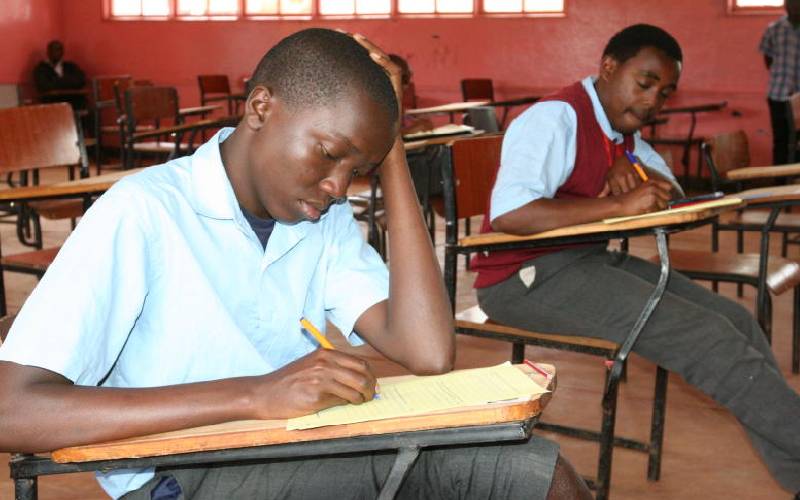×
The Standard e-Paper
Stay Informed, Even Offline
 Parents' tough burden of managing their school-going children will be laid bare today, as a report recommending an end to boarding is released today.
Parents' tough burden of managing their school-going children will be laid bare today, as a report recommending an end to boarding is released today.
Preliminary findings of the Competency-Based Curriculum (CBC) task-force report show a proposal that all children joining Junior Secondary schools be day scholars.